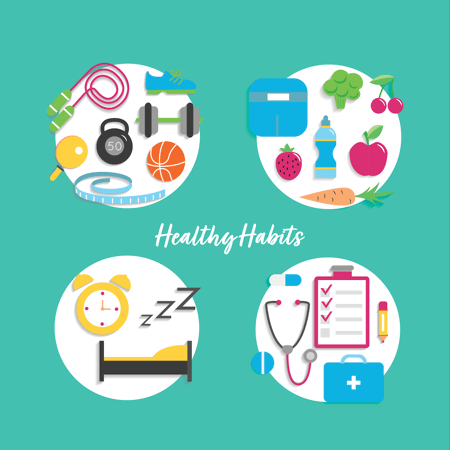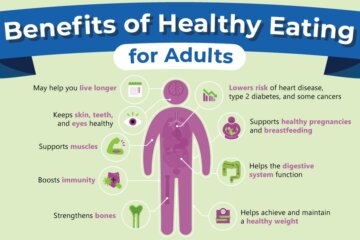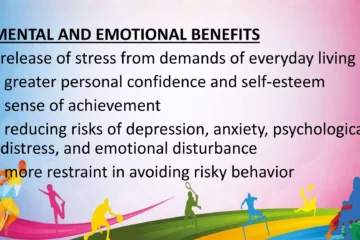Have you ever stopped to think about how your body affects your mind and emotions? Your physical health isn’t just about looking good—it plays a huge role in how you feel every day.
When your body is strong and well, your energy levels rise, your mood improves, and your mind stays sharp. Imagine waking up feeling refreshed, ready to tackle challenges without feeling drained or stressed. This article will show you why taking care of your physical health is key to your overall well-being and how simple changes can make a big difference in your life.
Keep reading to discover how you can unlock a healthier, happier you.
Link Between Physical Health And Well Being
Physical health and well-being connect deeply. A healthy body supports a healthy mind. When the body feels good, the mind tends to feel good too. This link shows how physical health affects overall well-being every day.
Impact On Mental Health
Good physical health helps reduce stress and anxiety. Exercise releases natural chemicals that improve mood. These chemicals help fight feelings of sadness. People who stay active often feel more focused. A strong body can lead to a calm and clear mind.
Boosting Emotional Resilience
Physical health builds strength to face challenges. Regular activity increases energy and stamina. This helps handle tough situations better. When the body is strong, emotions stay steady. Healthy habits create a foundation for emotional balance.

Credit: theconversation.com
Key Benefits Of Staying Physically Active
Staying physically active plays a big role in your overall well-being. It helps your body work better and keeps many health problems away. Regular movement boosts your energy and mood. It also supports your mind and body to stay strong and balanced.
Improved Cardiovascular Health
Physical activity strengthens your heart and blood vessels. It lowers bad cholesterol and raises good cholesterol. This reduces the risk of heart disease and stroke. Your blood flows more easily, and your blood pressure stays in a healthy range. A strong heart means more energy for daily tasks.
Enhanced Immune Function
Exercise helps your immune system fight germs. It increases the production of infection-fighting cells. This makes you less likely to catch colds and flu. Moving regularly also reduces inflammation in your body. A healthy immune system means fewer sick days and faster recovery.
Better Sleep Quality
Physical activity helps you fall asleep faster and enjoy deeper sleep. It regulates your sleep patterns and reduces stress. Good sleep restores your body and mind each night. Feeling rested improves your focus, mood, and energy. Regular exercise makes restful sleep more natural and refreshing.
Role Of Nutrition In Physical Health
Nutrition plays a key role in maintaining physical health. It provides the body with essential nutrients needed for daily functions. Good nutrition supports growth, repair, and overall well-being. Proper eating habits help the body stay strong and fight illness. Understanding nutrition’s role helps improve physical health and quality of life.
Fueling The Body
The food we eat gives energy for all activities. Carbohydrates, fats, and proteins supply fuel to the body. Carbohydrates are the main energy source for muscles and the brain. Healthy fats provide long-lasting energy and support cell health. Proteins help build and repair muscles and tissues. Balanced meals keep energy levels steady throughout the day.
Supporting Recovery And Energy
Nutrition helps the body recover after exercise or illness. Protein intake aids muscle repair and growth. Vitamins and minerals boost the immune system and reduce fatigue. Water keeps the body hydrated and supports all organ functions. Eating nutrient-rich foods speeds recovery and maintains energy for daily tasks. Proper nutrition prevents burnout and keeps the body active.

Credit: mykindred.co
Physical Health And Stress Management
Physical health plays a key role in managing stress. A healthy body helps the mind stay calm and focused. Stress can affect the body in many ways, such as causing headaches, tension, and fatigue. Taking care of your physical health reduces these problems and improves your mood. Simple habits like exercise and proper rest build a strong defense against stress.
Exercise As A Stress Reliever
Exercise is a natural way to ease stress. It helps the body release chemicals called endorphins. These chemicals improve mood and create a feeling of happiness. Even a short walk can lower stress levels. Regular exercise also improves sleep, which is often disturbed by stress. Moving your body helps clear your mind and reduce anxiety.
Mind-body Connection
The mind and body work closely together. Stress affects both. Physical health supports mental health by balancing hormones and reducing tension. Practices like yoga and deep breathing strengthen this connection. They calm the nervous system and lower stress hormones. Paying attention to your body’s signals helps manage stress better. A strong mind-body link leads to better overall well-being.
Long-term Benefits Of Maintaining Fitness
Maintaining fitness is a key part of staying healthy for many years. Regular exercise and good habits protect the body and mind. These habits help people feel stronger and live better lives.
Fitness is not just about how you look. It affects how your body works inside. The benefits add up over time, making a big difference in your future health.
Preventing Chronic Diseases
Exercise helps stop many chronic diseases from starting. Conditions like diabetes, heart disease, and high blood pressure become less likely. Physical activity lowers bad cholesterol and controls blood sugar. This keeps the heart and other organs healthy. Staying active also helps control weight, which reduces disease risks. Healthy habits protect the body from long-term illness.
Promoting Longevity And Quality Of Life
Fitness supports living a longer life with fewer health problems. Active people usually have more energy and better mood. Exercise improves sleep and reduces stress, making daily life easier. It also keeps muscles and bones strong, helping prevent falls and injuries. Staying fit means more independence and joy in old age. Quality of life improves with regular physical activity.
Simple Habits To Boost Physical Health
Simple habits can make a big difference in your physical health. Small changes add up over time. These habits help your body stay strong and your mind feel clear.
Focus on daily movement, healthy eating, and good rest. Each habit supports your well-being in important ways.
Daily Movement Tips
Move your body every day. Walking, stretching, or light exercise all count. Try short walks during breaks. Take the stairs instead of the elevator. Even small steps improve blood flow and energy.
Healthy Eating Choices
Eat foods that fuel your body. Choose fruits, vegetables, whole grains, and lean proteins. Drink plenty of water. Avoid too much sugar and processed foods. Healthy meals give you more energy and protect your body.
Prioritizing Rest And Recovery
Rest is key to good health. Aim for 7 to 8 hours of sleep each night. Take short breaks during work to relax your muscles. Rest helps your body heal and your mind stay sharp.

Credit: www.thewellproject.org
Frequently Asked Questions
What Are The Key Benefits Of Maintaining Physical Health?
Maintaining physical health boosts energy, improves mood, and strengthens the immune system. It reduces disease risk and enhances overall life quality. Regular exercise and healthy habits support long-term well-being and mental clarity.
How Does Physical Health Impact Mental Well-being?
Physical health positively influences mental well-being by reducing stress and anxiety. Exercise releases endorphins, which improve mood and cognitive function. A healthy body supports better sleep, focus, and emotional resilience.
Why Is Physical Activity Essential For Overall Well-being?
Physical activity improves cardiovascular health, muscle strength, and flexibility. It aids weight management and prevents chronic illnesses. Regular exercise promotes better mental health and increases lifespan, contributing to a balanced, healthy lifestyle.
Can Good Physical Health Prevent Chronic Diseases?
Yes, good physical health helps prevent chronic diseases like diabetes, heart disease, and obesity. Healthy habits such as exercise and balanced nutrition lower risk factors and support long-term health maintenance.
Conclusion
Taking care of your physical health supports your overall well-being. It boosts your energy and helps your mind stay clear. Healthy habits reduce stress and improve your mood daily. Small steps like regular exercise and good food matter. Your body and mind work better together this way.
Staying active keeps illness away and strengthens your heart. Feeling good physically makes life more enjoyable. Start simple and keep going for lasting benefits. Your well-being depends on the health choices you make.

“As the voice behind Radiant Glow Health, we are dedicated to being your ultimate wellness and vitality companion. Our mission is to inspire and guide you on your journey to a healthier and more vibrant life. Join us as we explore holistic health practices and empower you to radiate wellness from within.”



